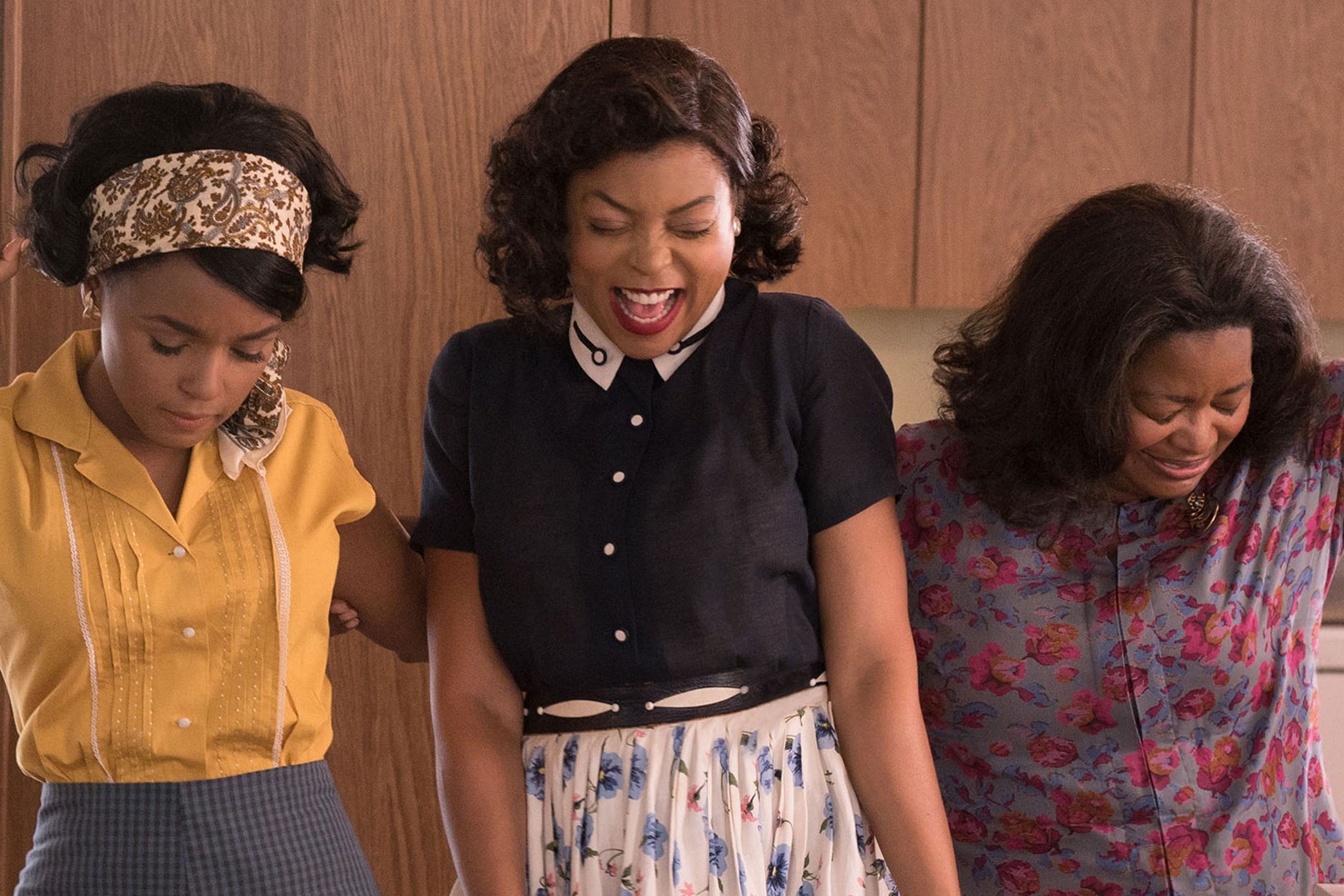If it were more purely about the workplace and less about the homefront, Hidden Figures might have an even stronger case for shining a light on unknown American history. The history in this case surrounds NASA and the lives of three black women who set a new standard for the status of African-Americans in the space program. The three women only occasionally overlap, but we meet them in an outstanding opening scene as they carpool to NASA’s Virginia site in the early 1960s. A minor problem stops the car, which is really no challenge given the mechanically minded women driving it; the ladies bide their time with jokes and easy, confident banter as they tinker with the engine. Then a police cruiser stops by, and the freeze that descends over the scene is immediate. The cop isn’t especially menacing; but these are black women and a white police officer in the Jim Crow South, and that is enough for instant watchfulness.
A terrific moment, which though defused sets the tone for what is to come. Throughout Hidden Figures the reality of being black and female is presented as a struggle that never ends. Taraji P. Henson plays Katherine G. Johnson, a former math prodigy hired as a “computer” for NASA. Promoted to work in the Space Task Group with a large room of white men, Johnson fights many of the film’s battles. Luckily, math is color-blind, a fact observed by her grouchily impressed boss, Kevin Costner; he’s aging into a solid character actor, and he turns into Ed Asner for the duration of this part. Jim Parsons, on break from The Big Bang Theory, plays the most skeptical of Johnson’s colleagues.
Another computer, Mary Jackson, is played by singer Janelle Monáe, who proves that her splendid turn in Moonlight was no accident. Jackson is determined to be an engineer, and gets swept upstairs in the rush to beat the Soviets to the moon (it’s intriguing to think that already-deserving African-Americans might have gotten opportunities faster because of the urgency of the space race). The third historical figure is Dorothy Vaughan, the supervisor of the “colored” computer department. Except she isn’t officially the supervisor, because—as her frosty boss (Kirsten Dunst) explains—NASA doesn’t award supervisory jobs to certain kinds of people. Octavia Spencer plays Vaughn with her usual razor-sharp ability to pass from comedy to “Are you effing kidding me with this?” steeliness.
The script, by Allison Schroeder and director Theodore Melfi, includes off-hours scenes for the three principals, which are less dynamic than the office material. One can imagine a leaner, tougher movie that focuses entirely on the professional lives of these women, since that is after all its point. The domestic scenes, which include the widowed Katherine’s interest in a military suitor (Mahershala Ali, the Oscar favorite from Moonlight), are soft by comparison. Hidden Figures also has a few too many feel-good moments that seem unlikely given the early-’60s setting—presumably included to give contemporary audiences a chance to vent about the stupid unfairness of a system that excluded some citizens from the American Dream, or at least made them use separate bathrooms while pursuing it.
The business of having a “colored” bathroom at NASA becomes a running storyline in the film, as Katherine Johnson must sprint across a large campus just to reach the washroom. The film plays this for comedy for a while—it’s a little too eager to go for cute jokes—but the device has a satisfying conclusion, whether or not the scene of Costner’s brusque boss demolishing the signs of segregation is a fabrication. What’s moving about Hidden Figures is not the big moments, but the simpler spectacle of people doing their jobs well (an underrated subject for movies), especially when “doing their jobs well” is made harder for them by a rigged system. That’s when work becomes heroic, whether or not a space race hangs in the balance. Hidden Figures, Rated PG. Opens Fri., Jan. 6 at various theaters.
film@seattleweekly.com






